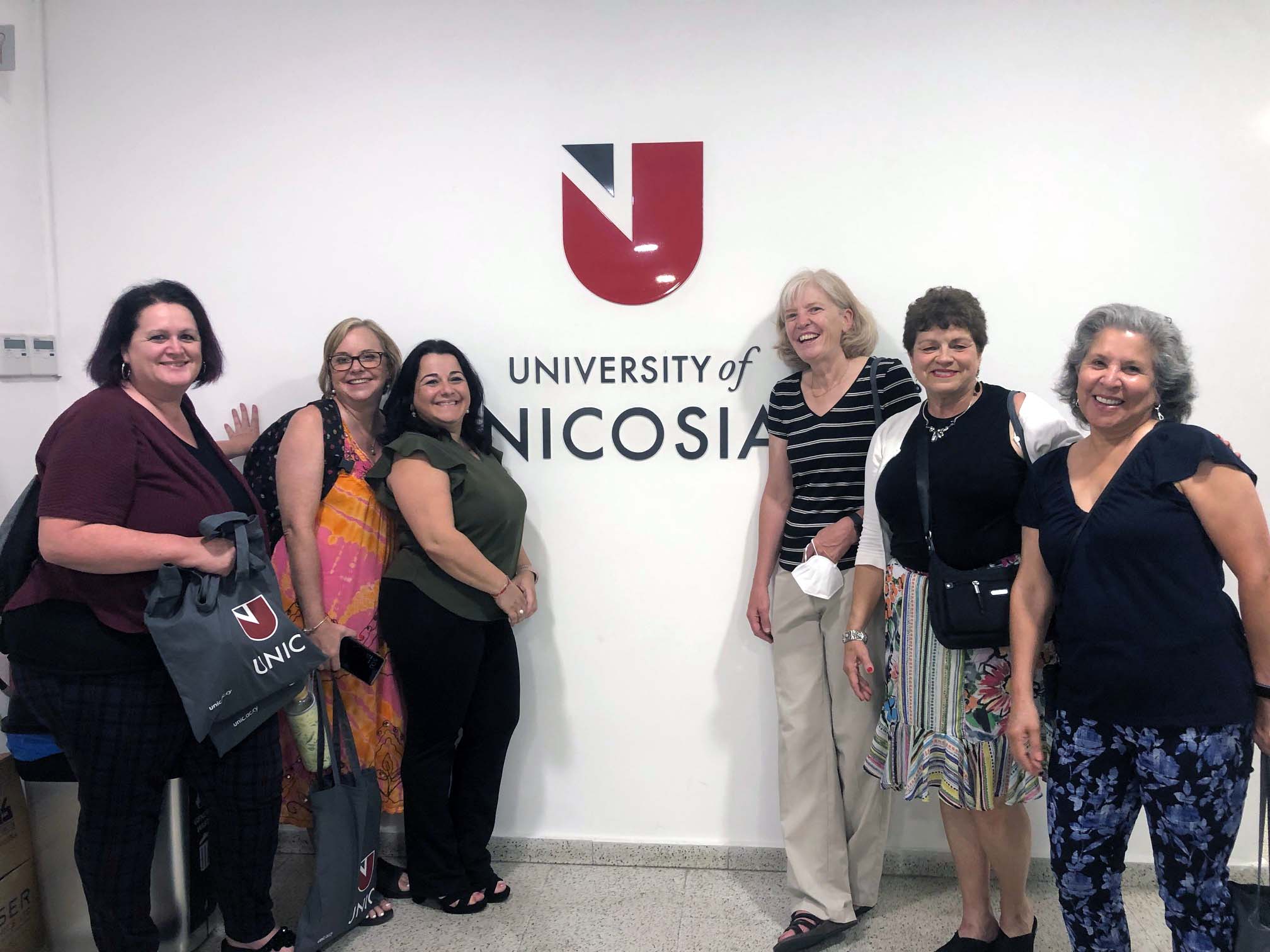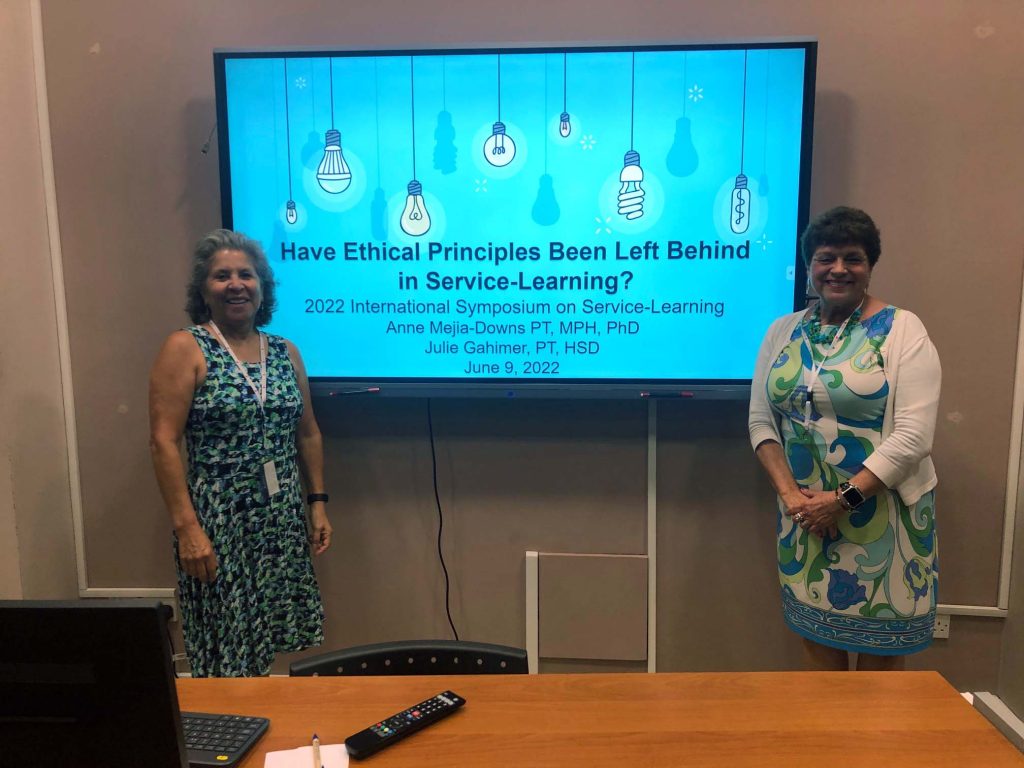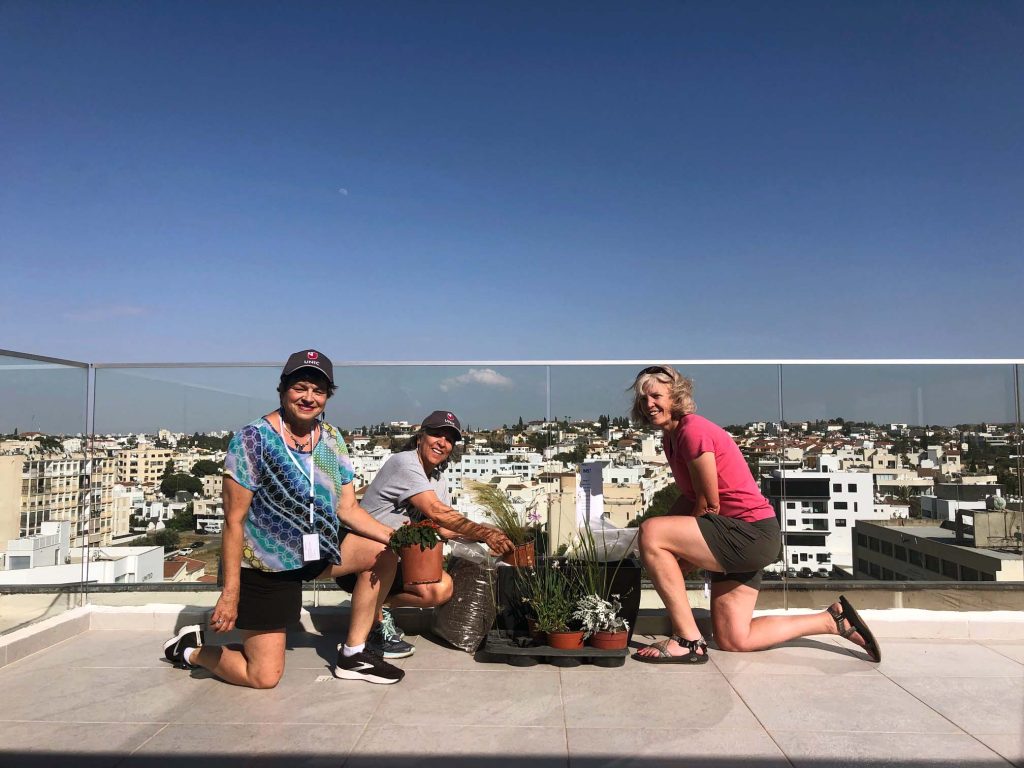8th Annual International Symposium on Service-Learning (ISSL) Takes “Education for Service” Global

In June, students, faculty and staff from around the world gathered at the University of Nicosia in Cyprus for the 8th International Symposium on Service-Learning (ISSL).
Held every two years, the ISSL promotes service-learning globally and encourages the use of service-learning as an innovative and transformative pedagogical tool in higher education. The ISSL emphasizes the collaborative element to service-learning by building transnational partnerships on a local, national and global level.
Marianna Foulkrod, director of the Center for Service-Learning and Community Engagement at the University of Indianapolis, serves as one of the co-chairs of ISSL and strives to keep the University at the forefront of service-learning efforts.
“The University of Indianapolis was a key player in the development and initiation of ISSL along with Stellenbosch University,” said Foulkrod. “It is important that we continue to place our university in such leadership roles in this area globally and to continue to lift up our motto ‘Education for Service’ in ways that continue to build intellectual capacity for faculty, students and partners involved in this teaching and learning methodology.”

Each year, UIndy participates through a delegation of students and faculty who present their scholarly work at ISSL. This year’s presentations included:
- “Fostering Critical Citizenship in an Online Environment,” presented by Lisa Borrero (Interprofessional Health, Aging Studies), Marianna Foulkrod (Service-Learning) and Anna Moore ‘22 (Sociology)
- “Have Ethical Principles Been Left Behind in Service-Learning,” presented by Julianna Gahimer (Physical Therapy) and Anne Mejia-Downs (College of Saint Mary, Physical Therapy)
- “The Redemptive Power of Restorative Justice: Disrupting the Status Quo Through Visual Culture and Human-Centered Design,” presented by Rhonda Wolverton (Art and Design) and Dave Simmons
- “Approaching Critical Service-Learning: One Step at a Time,” presented by Jennifer VanSickle (Kinesiology) and Anna Moore ‘22 (Sociology)
Additionally, this year’s ISSL featured a service-learning experience in the thematic area, “Towards a Greener Future,” where attendees assisted in the construction of sustainable rooftops. The experience was organized by the Center for Social Innovation in Cyprus, which supports the identification of systemic problems and the development of smart and sustainable solutions to those problems.

Lisa Borrero, associate professor of interprofessional health and aging studies, became involved in the ISSL in 2015 as a presenter and chose to join the planning committee.
“ISSL is a unique way for educators around the world to learn from one another about a wide variety of ways to approach service-learning,” Borrero said. “The value of moving outside one’s own educational culture to understand how other programs and institutions instill the value of service in their students cannot be overstated. Though we all recognize the importance of service and service-learning, some of us may use different terms to describe what we do, utilize unique frameworks to build experiences for students, and/or approach assessment/evaluation with a different lens. The impact of gaining exposure to this at ISSL is that people’s perspectives about service-learning are broadened, new ideas and approaches are considered, and potential collaborations across universities are explored.”
Julianna Gahimer, professor of physical therapy, has been involved with the ISSL since its second conference in 2007. She chose to become involved as a fulfillment of UIndy’s motto, “Education for Service,” and recommends that other UIndy faculty and staff follow her example, for their students’ benefit.
“The ISSL is a wonderful way to get involved and to get students involved, and not that they have to do something for a class,” Gahimer said. “The goal in being an educated citizen is to give back to your community in any way that you can. Faculty should model that.”
“My hope is for ISSL to continue to create spaces for innovation and creativity in higher education globally and for the symposium to continue to be a strong platform for faculty, administrators, students and the community to continue to share their work and to exchange ideas while building meaningful and strong collaborations globally,” said Foulkrod.
The 2024 ISSL is anticipated to be hosted at the University of Indianapolis once again. Borrero encourages interested students, faculty and staff to take advantage of having the ISSL in “our backyard.”
“Attend some sessions, talk with some of your colleagues and other presenters, and, if you’re motivated, consider becoming involved!” Borrero said. “The more people involved in ISSL – locally and from around the globe – who are passionate about service-learning, the more value the symposium will have for all.”
